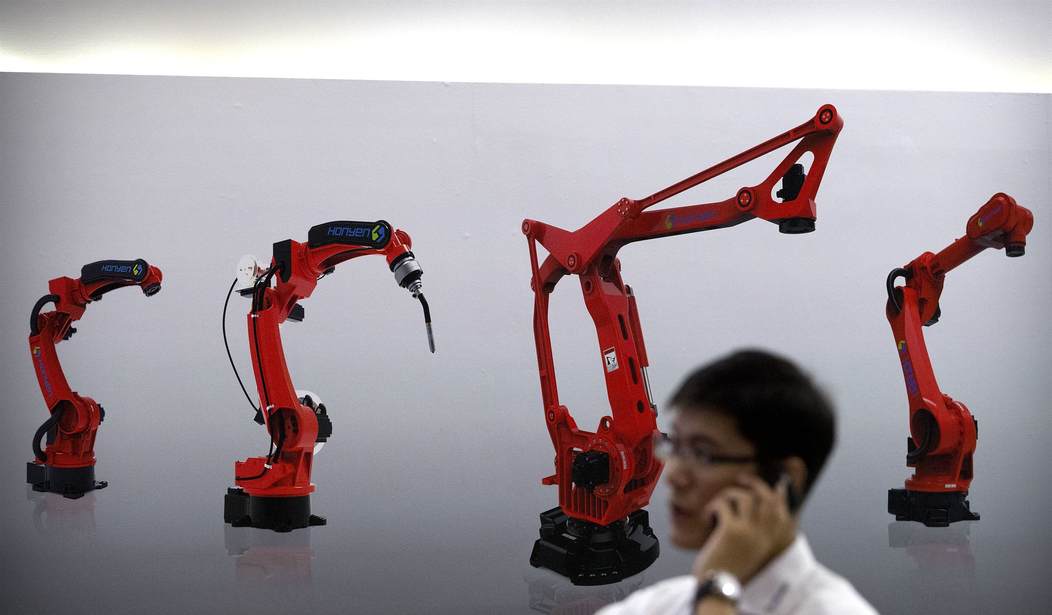On the subject of the burgeoning field of Artificial Intelligence and the way it seemed to explode on the world stage in 2023, author and transhumanist Zoltan Istvan has an article at Newsweek this week that offers a lot of food for thought. Rather than focusing on the potential for a robot revolution that overthrows mankind, he delves more into the societal impacts of AI as it rapidly replaces humans in the workforce. (He does touch on the robot revolution later in the article, though.) He points to recent debates suggesting that the federal government should “nationalize” AI as a way to protect both workers’ rights and capitalism itself. While I agree that both are laudable goals, Istvan and I come down on very different sides when it comes to possible solutions. But we both manage to agree that nationalizing AI would be “a bad idea.”
It’s a bad idea. For starters, I don’t want big government in the innovation business; it already has a hard enough time trying to keep people out of poverty. Right now, 1 in 5 kids in the U.S. is going to bed hungry or malnourished at night, and America’s homeless problem is the worst it’s been in my 50 year lifetime.
After all the benefits capitalism has brought us and the world over the last century, we owe something to it. And that thing we owe is to stay the course trusting it and free markets, which means letting innovators get their spoils. I agree it’s not fair U.S. billionaires hold over 50 percent of the wealth of America. But to take their companies, patents, and creations away to even the scales of justice is not the answer. If we should do anything with billionaires, it’s high time to raise their taxes to help them contribute to a UBI.
But the final and perhaps most important reason we should drop the idea of nationalizing AI is due to geopolitical reasons. We need our best and most innovative companies and inventors leading the AI revolution forward, so that China, Russia, and other potential adversaries don’t get ahead of us.
So what would this “nationalization” of AI look like? Essentially, we’re talking about having the federal government seize nearly total control of the development and deployment of such technology through regulatory oversight and a series of mandates. This would presumably be done to prevent companies from largely eliminating human workers in many roles while simultaneously mandating “guardrails” from AI developers to ward off the potential of the AI going off the rails when it eventually “wakes up.” (Assuming it hasn’t done so already under the covers.)
It’s a valid concern because we’re talking about a lot more jobs than just some welders on the production lines in Detroit. Jobs in medicine, law enforcement, construction, and even writing and creative arts will be increasingly on the firing line. Sadly, Istvan’s solution is to have the government do basically nothing about AI itself, but rather focus on ensuring that all of the former workers are cared for. He argues that this could be done by instituting a guaranteed basic income for all at the national level. This would be largely funded by taxing all of the new billionaires getting rich off of AI and robotics into submission and using those taxed assets to keep all of the newly unemployed afloat.
As a dedicated capitalist and a small-government conservative, I too recoil at the idea of turning total control of the development and deployment of Artificial Intelligence over to the federal government. I can’t imagine a less qualified or more inept group of characters to take on such a complex and daunting task. But at the same time, I also reject the idea of a socialist redistribution system where that same government seizes control of most of the money in the country and determines how and when it will dribble out the funds to the starving masses.
This entire approach simply feels like the worst sort of surrender. We’re expected to blithely accept that AI has arrived and will soon replace most of our jobs and there’s nothing we can do about it. Work is fundamental to American, capitalist culture. The ability to build your own future, grow what wealth you can, and pass it on to the next generation is at the core of a truly free society. People like Derek Thompson have been speculating about “a world without work” for more than a decade. Some see the concept as not only feasible but potentially ideal. But I’ll tell you what such a proposal sounds like to me. It summons up visions of beautiful, idle people playing in a garden in the sunshine. And that does indeed seem wonderful, at least until the siren sounds and the Morlocks come swarming up out of the tunnels and drag them away to be cooked and eaten. (That’s a Time Machine reference for those who might not be familiar.)
So what’s the solution? This is where I fear I have to bail out and leave the reader to find a lifeboat of their own. I wish I had an answer, but my inner Luddite is screaming too loudly for me to organize my thoughts coherently. The future of technology is rushing at us at breakneck speed just as it has been since the 90s. And for every great advancement that’s taken place, particularly since the arrival of the internet, an even greater amount of creeping evil and societal damage has been observed. I fear that Artificial Intelligence will only accelerate that trend and we’ve already seen it happening. I will repeat a previous warning for the umpteenth time here. The AI genie is already out of the bottle. It will not be going back in. You might consider stocking up on nonperishable foods, guns, and lots of ammunition. Best of luck.









Join the conversation as a VIP Member